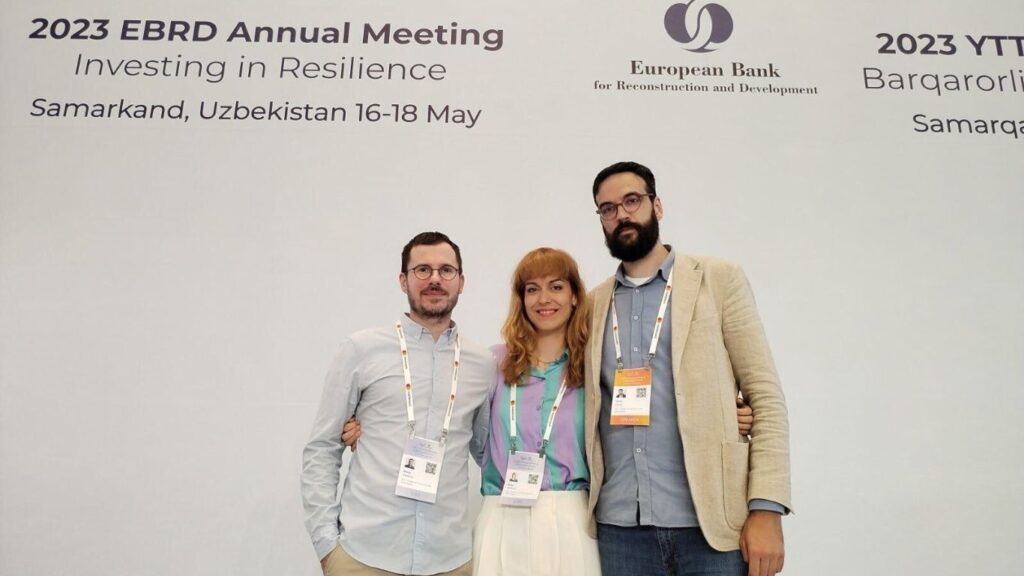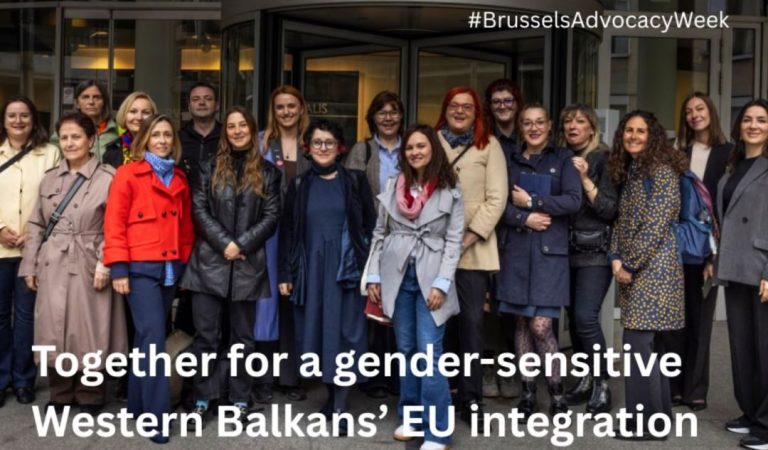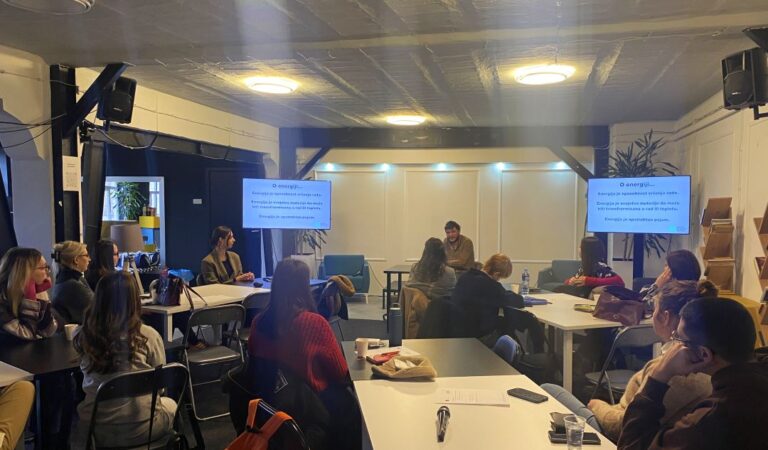Representatives of Initiative A 11 participated in the 32nd Annual Meeting and Business Forum of the European Bank for Reconstruction and Development (EBRD), which took place in Samarkand, Uzbekistan, from May 16 to 18, 2023. This event once a year brings together investors, clients, civil society and public officials, with the aim of starting a discussion on various topics of common importance, under the auspices of the Bank. This year’s forum was also an opportunity for the EBRD’s independent mechanism, IPAM (Independent Project Accountability Mechanism), to present its role in determining responsibility and addressing the damage that may occur if a project financed by the Bank is not implemented in accordance with its policies.
In November 2020, Initiative A 11 submitted a complaint before this mechanism (more details can be found here), on behalf of 17 families who lived and worked at the landfill in Vinča, until the construction of the new incinerator, when they were forcibly displaced from their barracks and left without accommodation and income. During their displacement, a number of provisions of both national and international legislation were violated, as well as EBRD standards related to non-compliance of the undertaken activities with the Bank’s social and environmental policies. In this way, the mediation process was started, in which all stakeholders relevant to the project participate, and Initiative A 11 was invited to the mentioned conference to present, from the perspective of the affected families, the obstacles and challenges that arose during the process, as well as the ways in which they were overcome. The panel entitled “Remedy and Sustainability through Conflict Resolution” took place on May 16, when this case was presented from different angles, and the representative of Initiative A 11, Danilo Ćurčić, in more detail explained how the process went from the moment of the displacement of Roma families at the end of 2018 and what problems they have faced so far. Also, there was a discussion about the process of finding solutions that should be adequate and acceptable for everyone. This panel was mostly visited by activists from Central Asian countries, which were the focus of this year’s international gathering.
Given that the mediation process is coming to an end, it remains to be seen whether the results of this procedure will be adequate and sustainable, and whether the displaced families will achieve full access to housing and restoration of livelihood, which are the two main concerns expressed in the complaint.



